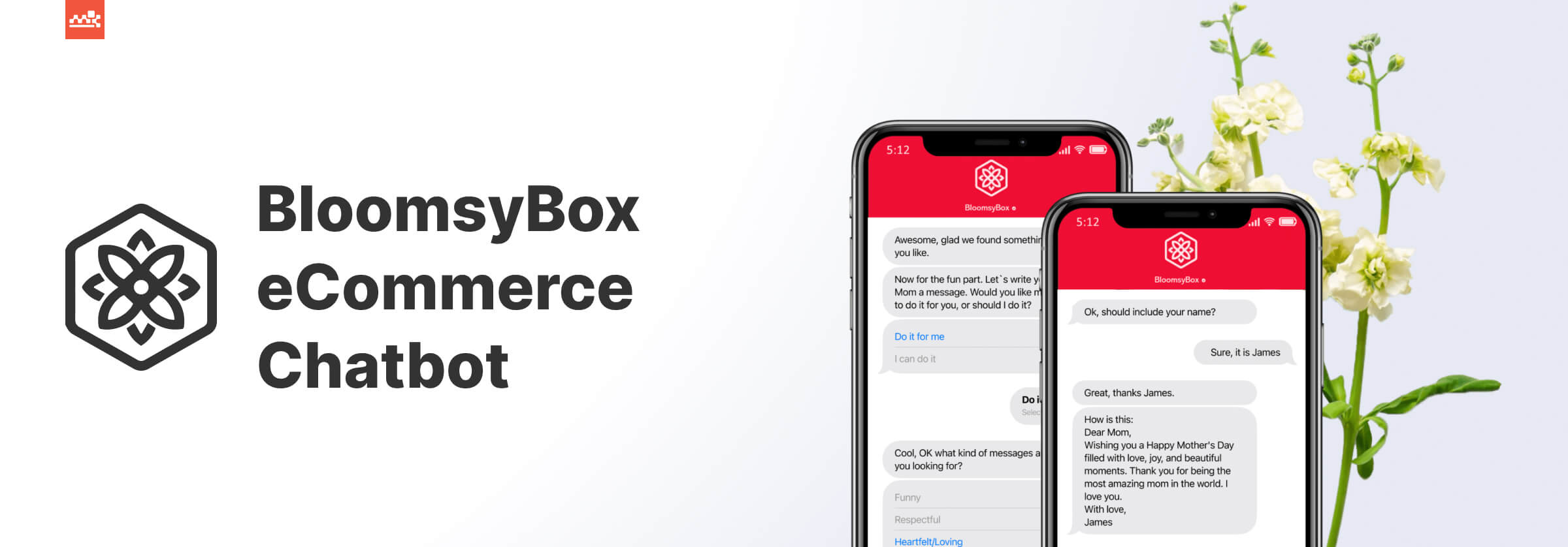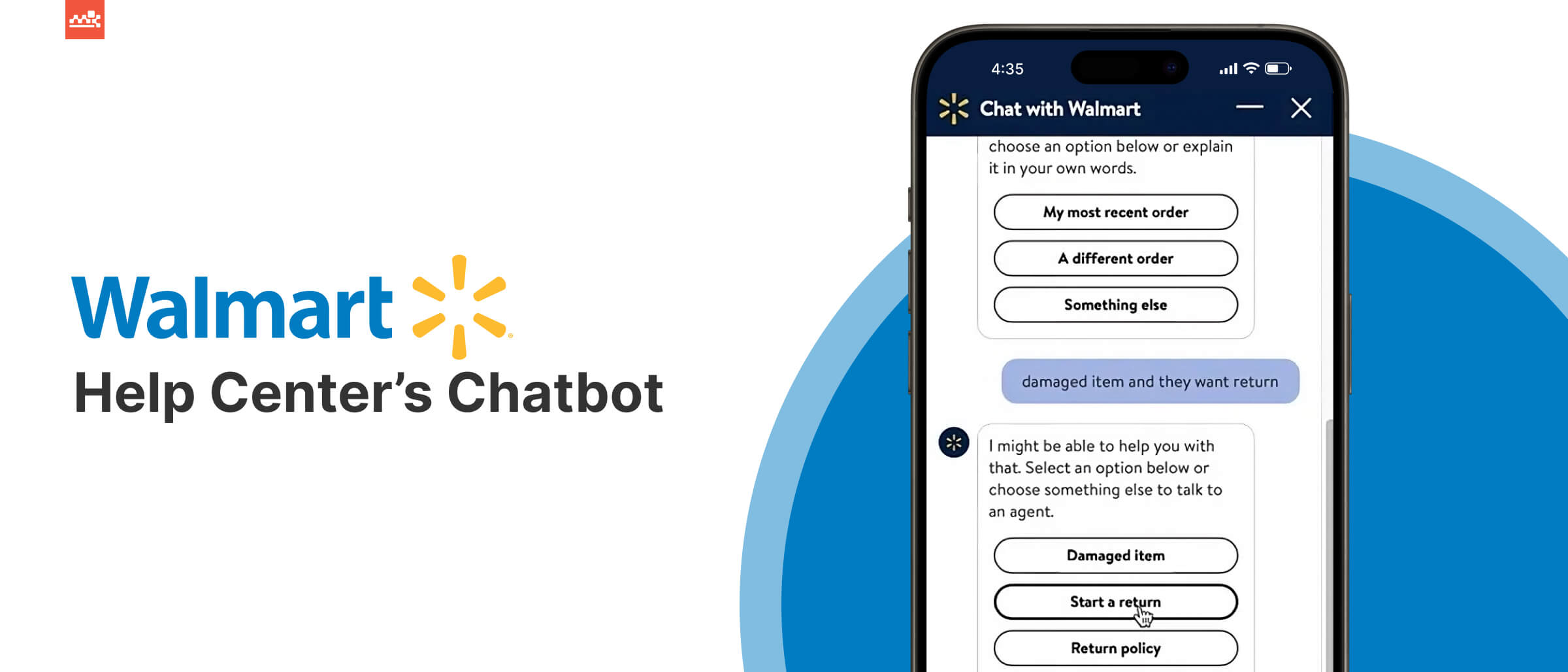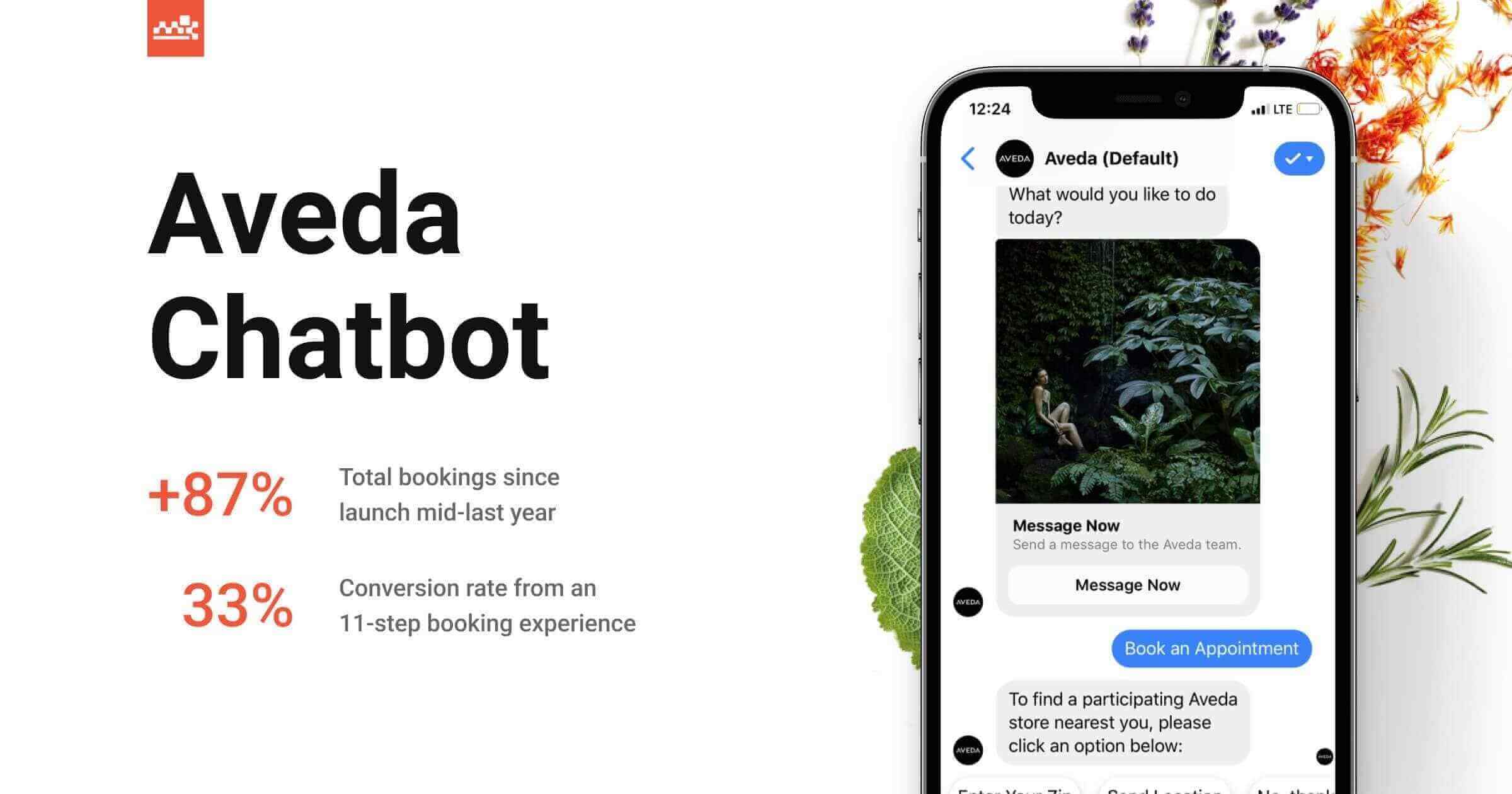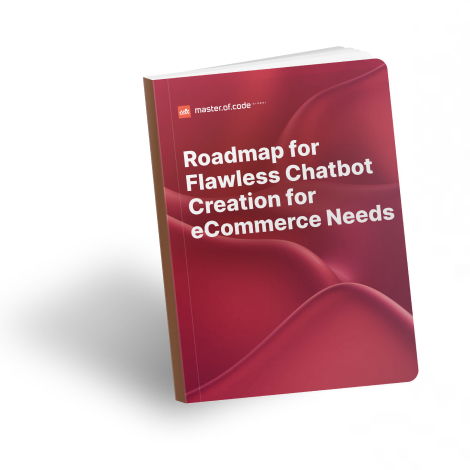After decades of research and development, AI technologies are delivering significant successes across industries – the consumer goods sector is no exception. From supply chain optimization to personalized marketing, intelligent solutions streamline operations, uncover buyer insights, and fuel innovation.
Customer experience remains a primary focus, especially considering the detrimental impact of the subpar shopping process on company revenue, recognized by 74% of decision-makers. No wonder client support within this landscape has evolved significantly. Traditional call centers and static FAQ pages are being replaced by dynamic digital channels that prioritize convenience and self-service. This evolution has paved the way for conversational commerce, powered by artificial intelligence.

At the same time, the technology’s influence extends beyond client care, reshaping the entire domain. If you want to experience the benefits of Conversational AI for consumer goods firsthand, we invite you to read this article. You’ll discover 5 powerful tactics to elevate your buyer journey, facilitate further business growth, and level up your brand game.
Table of Contents
1. Enhancing Customer Engagement with Conversational AI
Conversational AI (CAI) is transforming the way consumer goods companies interact with their clients. Unlike traditional support channels, this technology fosters seamless, personalized interactions 24/7. Imagine your product pages equipped with intelligent chatbots that answer questions, offer recommendations, and even facilitate purchases – that’s the power of conversational customer engagement.
Interactive ad formats allow brands to cultivate long-lasting and consistent relationships with prospects. This dialogue-driven advertising, often found in messaging apps, creates a dynamic digital journey. Its application leads to higher click-through rates and increased sales. The results speak for themselves: 91% of businesses see the value in using artificial intelligence for buyer engagement. Moreover, 61% of client service leaders note improvements in overall user experience.
BloomsyBox eCommerce Chatbot
The BloomsyBox campaign is a prime example of AI’s ability to blend entertainment with lead generation. The quiz format facilitated a more profound consumer connection with the brand. The company also collected valuable data to fuel future marketing tactics.

The integration of Generative AI for greeting cards took this strategy even further. Technology created truly unique and memorable touchpoints for customers. These efforts paid off: the business got an impressive 60% completion rate and 78% prize redemption. Such success underscores how conversational solutions can foster loyalty and drive tangible outcomes.
2. Personalization and Omnichannel Strategies
Clients crave personalized experiences, and Conversational AI empowers brands to fulfill this demand. This technology can analyze user data to offer tailored recommendations and relevant promotions. Companies recognize this, with 41% using AI to personalize interactions for their target audience.
By meeting consumers on their preferred channels, businesses create a pain-free customer journey. This omnichannel approach means clients can switch between platforms with their context preserved. The result is a sense of convenience and responsiveness, boosting their satisfaction. This focus on personalization pays off – 64% of business leaders saw improvements after implementing such techniques.
Mary Kay’s Virtual Assistant
myCustomers+ brings the benefits of these tactics to their salesforce. Consultants view consumer profiles and manage inventory on the go, which enables them to provide exceptional service. Moreover, with access to client preferences and special occasions, sellers can develop offers that resonate deeply with individual needs. Such targeted and timely suggestions can significantly boost conversion rates.
The assistant also includes features like product scanning and automatic reminders. The result is streamlined order arrangement and further oversight processes. Sellers get more time to focus on proactively reaching out to buyers, upselling, cross-selling, and closing deals.
3. 24/7 Customer Support and Assistance
In the packaged goods industry, timely help for clients is essential for higher retention. However, this can be challenging during peak seasons or with limited staff. Here’s where Conversational AI shines. Such solutions effectively handle requests 24/7, even in periods of high demand.
They can answer product-related questions, like ingredient lists or usage instructions, resolve order problems, and even facilitate purchases. Eventually, human agents have more time to tackle complex issues head-on – a key expectation for 63% of customers who value rapid response times. In fact, 61% of buyers prefer quick AI resolutions over waiting for a support specialist.
Generative AI-Powered Retail Chatbot
The technology also significantly improves their overall shopping experience. A prime example of this power is the 24/7 Apple Messages for Business Bot for an electronics manufacturer. Master of Code Global developed and launched this solution in partnership with Infobip before Black Friday started.
The bot integrates with Shopify, streamlining the purchase process and answering product queries in real-time. The AI capabilities enable it to tailor responses to individual needs and reduce cart abandonment rates. The results speak for themselves: an impressive 80% CSAT score and $300 average order value.
Walmart’s Virtual Agents
Another illustration is the use of AI assistants by a major U.S. hypermarket chain to offer global buyer support in multiple languages. Their NLU-powered interactive systems handle routine inquiries like order status and returns. With its help, the corporation reduced wait times and allowed staff to dedicate their expertise to complex issues.

In the case of their Chilean operation, localized chatbot training further boosted efficiency. This resulted in a remarkable 38% increase in customer satisfaction scores.
4. Conversion and Brand Differentiation
In the competitive consumer goods market, finding new ways to convert prospects is crucial. Conversational solutions offer a potent tool for achieving this. On-site chatbots guide shoppers through product selection, helping them find the ideal items while addressing any concerns. Bots are able to increase average order value by recommending complementary products. The impact is undeniable – 99% of businesses report improved lead conversion rates after implementing this technology, with up to 30% or more increases.
Standing out from the crowd is also essential. Conversational AI in retail can provide that edge with unique brand experiences. Imagine a virtual fragrance consultant that learns shopper preferences, offering scents that become favorites. Or, a chatbot that suggests personalized meal plans and recipes based on dietary needs. These distinctive interactions result in memorable customer purchases, cultivating brand advocates and attracting more clients.
5. Coupon Campaigns and Promotional Strategies
Conversational commerce also increases coupon effectiveness for consumer goods businesses. Chatbots personalize the process for each user. They target prospects with relevant special offers based on their preferences and buying history. For instance, consider a scenario where an AI agent proactively suggests a discount on a customer’s frequently bought items, encouraging them to restock. This tailored approach can boost redemption rates and encourage repeat purchases.
Aveda Chatbot
Conversational AI also helps drive foot traffic. Aveda’s booking assistant is a prime example. The solution simplifies appointment scheduling for complimentary beauty services, increasing store visits. It offered promotions, such as a gift for purchase, further incentivizing clients.

The CAI-powered strategy resulted in a 378% increase in users, over 6,900 bookings, and a remarkable 33.2% conversion rate. Such outcomes illustrate the power of conversational commerce examples for driving quantifiable sales growth.
Conclusion
The consumer goods industry is poised for even more groundbreaking value-driven applications of Conversational AI. From hyper-personalized product suggestions to instant issue resolution, this technology will become increasingly integral to the customer experience. The future holds promise for AI-powered tools that predict demand, streamline supply chains, and even enable custom product creation. With such potential, now is the time for businesses to embrace innovation.
With our expertise in Conversational AI services, we can help you develop tailored solutions to achieve a decisive competitive edge. Want to explore hyper-targeted marketing, sentiment analysis, or personal touchpoints throughout the buyer journey? A chatbot or virtual assistant might be the perfect solution. Let’s discuss your goals and how we can unlock the power of artificial intelligence for your brand.
Ready to build your own Conversational AI solution? Let’s chat!







